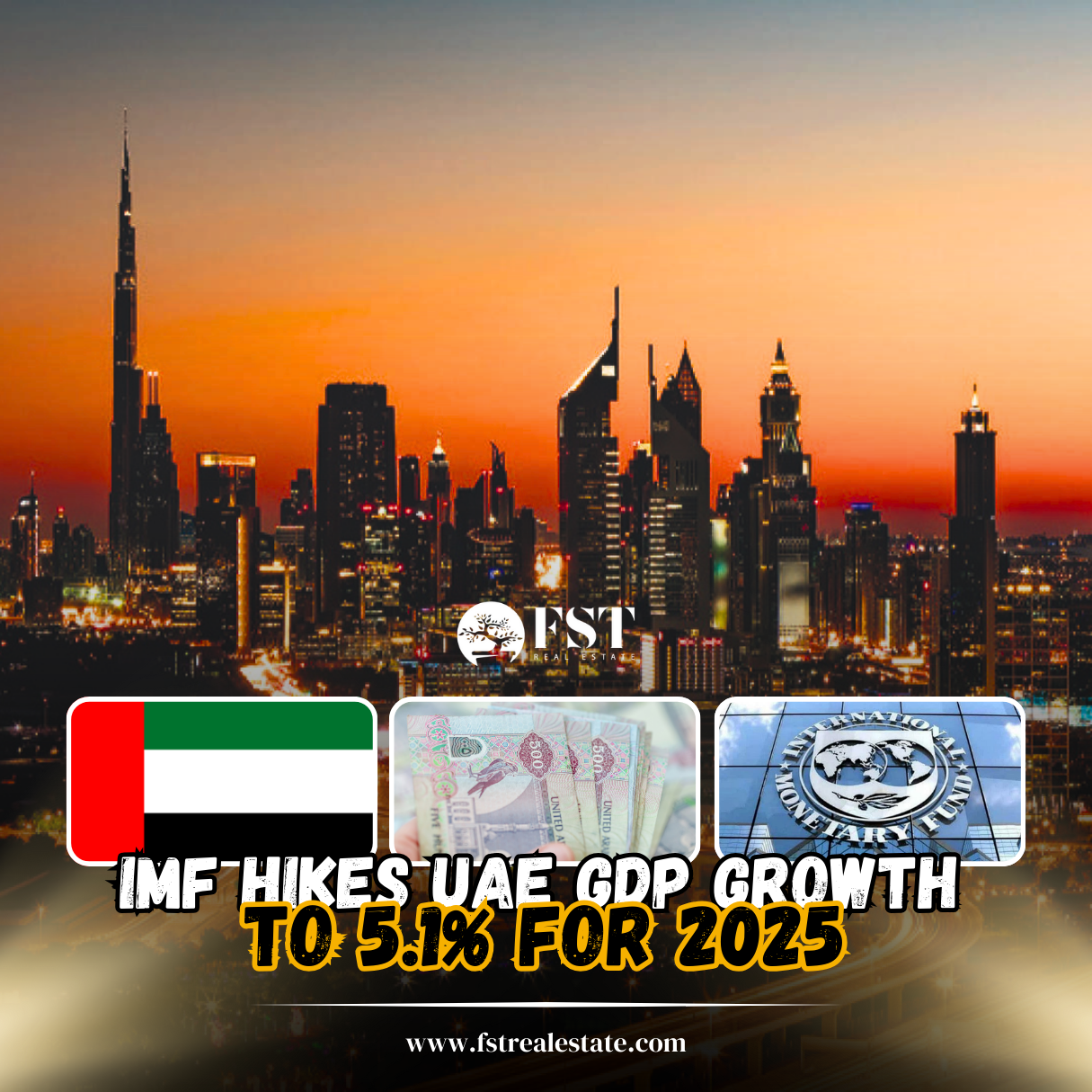The International Monetary Fund (IMF) has revised its growth forecast for the United Arab Emirates (UAE) for 2025, increasing it by 0.9% to a projected 5.1%. This adjustment is attributed to robust growth in non-oil sectors and stable crude oil prices, as detailed in the October edition of the World Economic Outlook (WEO) released by the IMF.
In its previous report in April, the IMF had estimated the UAE’s GDP growth at 4.2% for 2025. Additionally, the IMF raised its 2024 growth forecast earlier this year, reflecting strong economic performance. The overall real GDP growth forecast for 2023 has been adjusted to 4%, up from the earlier estimate of 3.5%.
Key Drivers of Economic Growth
Ali Al-Eyd, head of the IMF staff team that visited the UAE in May, highlighted that the UAE’s economic growth is broad-based, driven by significant activity in sectors such as tourism, construction, manufacturing, and financial services.
“Foreign demand for real estate, enhanced bilateral and multilateral ties, and the UAE’s status as a safe haven continue to propel rapid growth in housing prices and rents, contributing to ample domestic liquidity,” Al-Eyd stated. He also noted that hydrocarbon GDP growth is expected to rise this year, bolstered by increased crude oil production in line with the UAE’s OPEC+ quota.
Al-Eyd emphasized that the impacts of geopolitical tensions have been contained, and the authorities have responded swiftly to recent flooding events.
Resilience of Non-Oil Sectors
The UAE’s non-oil sectors have shown remarkable resilience in the post-COVID-19 landscape, with significant contributions from real estate, travel and tourism, trade, finance, retail, and aviation. This diversification has led to a substantial economic boom, creating numerous job opportunities in the private sector and stimulating overall economic activity.
On October 8, the UAE Cabinet approved a historic federal budget of AED 71.5 billion for 2025, marking the largest budget in the country’s history. This budget surplus is supported by increased revenues from oil prices and new corporate taxes.
Strong Fiscal Position
James Swanston, an economist for the MENA region at Capital Economics, noted, “The strength of the UAE’s balance sheet positions it well to maintain a loose fiscal policy. In the second quarter, the country recorded a budget surplus of 5.4% of GDP, and authorities anticipate revenue growth next year, likely driven by higher non-oil tax revenues from a full year of corporate tax receipts. Additionally, oil revenues are expected to rise as the UAE increases output to leverage its higher base quota.”
The UAE aims to achieve an annual growth rate of 7% to double its GDP to AED 3 trillion by 2030. Abdulla Bin Touq Al Marri, UAE’s Minister of Economy, stated in May that while global challenges have tested the UAE’s resilience, the goal remains to grow the economy by 7% this year. He added that the country is positioning itself to become a global hub for an innovation-based economy by the next decade.
Conclusion
The IMF’s positive outlook for the UAE underscores the country’s strong economic fundamentals and its ability to adapt to changing global conditions. With a focus on diversifying its economy and enhancing its fiscal policies, the UAE is well on its way to achieving its ambitious growth targets.

